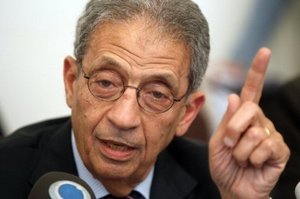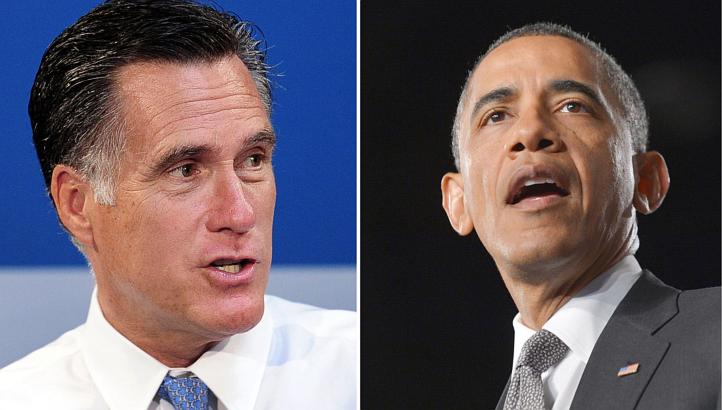CAIRO: While most voters in Shoubra and Rod El-Farag said the process went “smoothly,” others complained that the polling stations were too crowded and unorganized.
Hussein Mohamed, 61, decided to drop out of the queue in El-Tawfiqeyya School in Shoubra because it was too crowded.
"I’ll try to come again early tomorrow to vote," he said.
Several polling stations opened their doors two hours late, 10 am, including the one at Abbas El-Akkad School.
There were polling stations designated only for women like Ahmed Orabi and Abbas El-Akkad in Shoubra. Women queued outside, saying they felt more comfortable and safe in women-only polling stations.
Judge Lamiaa Hassan oversaw two polling stations inside Naguib Mahfouz School in Rod El-Farag.
"Each judge is supposed to monitor only one station," Hassan told Daily News Egypt. "But we were surprised by the shortage in the number of judges and by the huge voter turnout, so each judge had to supervise two stations."
Each polling station includes six administrators managing the electoral process and guiding the voters.
Hassan pointed out that 146 candidates were vying for the individual seats in this constituency, which confused voters.
The Freedom and Justice Party set up booths near the polling stations to help voters figure out where to go according to their ID cards, while handing out flyers listing their candidates.
In Rod El-Farag, the FJP set up their booth inside the Manar El-Islam Mosque, and used loudspeakers to promote their candidates.
"We want to facilitate the process so voters would head to their designated stations without any confusion," Ragab Mostafa, member of the FJP said.
Ragab denied that there was any pressure on voters to elect FJP candidates only.
"We inform them about all the candidates and they can choose," he said.
Flyers for the FJP, the Salafi Al-Nour Party and the Egyptian Bloc were distributed outside the polling stations, in violation of campaigning laws.
Some voters complained that ballots for individual candidates were not stamped, and had to be signed by the judges.
Traffic in Shoubra blocked side streets and main roads. While taxi drivers said it was because of the elections, Hazem Farouq, who leads the list of FJP candidates in the first constituency, said it was due to the large number of buses carrying the ballot boxes, ballots and judges which brought traffic to a complete halt.
"It would be very difficult to get an ambulance in here if someone fainted or any violence broke out," he told DNE while visiting Ahmed Orabi School in Shoubra.
John Talaat, a candidate with the Egyptian Bloc in the first constituency, agreed with Farouq that the stations were very crowded and disorganized, adding that some stations in Rod El-Farag opened their doors at 1:30 pm and some judges refused to sign the unstamped ballots.
The Free Egyptians Party, which leads the Egyptian Bloc, issued a statement saying that a judge in Ramsis School in Shoubra was urging voters to elect FJP candidates.
However, Judge Ahmed Ammar, who was supervising the elections at that school denied the charges, and allowed DNE to observe the station.
The Free Egyptians Party representative at the polling station, Dawood Samir, also denied the claims saying he didn’t know where this information came from.
Both Farouq and Talaat didn’t believe that former members of the disbanded National Democratic Party would pose any competition for them, adding that they were optimistic about the results.
Many of the voters said this was their first time to vote in Egypt’s parliamentary elections, which were previously rigged and dominated by members of the disbanded NDP.
"There’s freedom and democracy now and I had to vote," said one voter.
Another voter said he was voting for the martyrs who died in the 18-day revolt which toppled Hosni Mubarak.
Others said that Egypt needed their vote to get through this transitional period.
However, Reda Batran, 32, who came with her eight-year-old son, said she voted because she didn’t want to pay a LE 500 fine.
"We can’t afford that," she said.
Khaled Ahmed, 43, said he voted for the FJP because it was an Islamic party, while Ahmed Karem said the Egyptian Bloc represented a new ideology and new faces. On his part Abdel Rehim Nour, 51, said he voted for Al-Nour because they would enforce Islamic jurisprudence.
The first constituency consists of nine areas including Shoubra, Zeitoun, El-Zawya El-Hamra and Hadayek El-Qobba.
In the 2010 elections, Shoubra, Zeitoun and El-Zawya El-Hamra were separate constituencies.
Members of the disbanded NDP previously dominated the polls in these constituencies, including former presidential chief of staff Zakaria Azmy, who snatched a seat in Zeitoun constituency.
Azmy is now detained in Tora prison on corruption charges.


